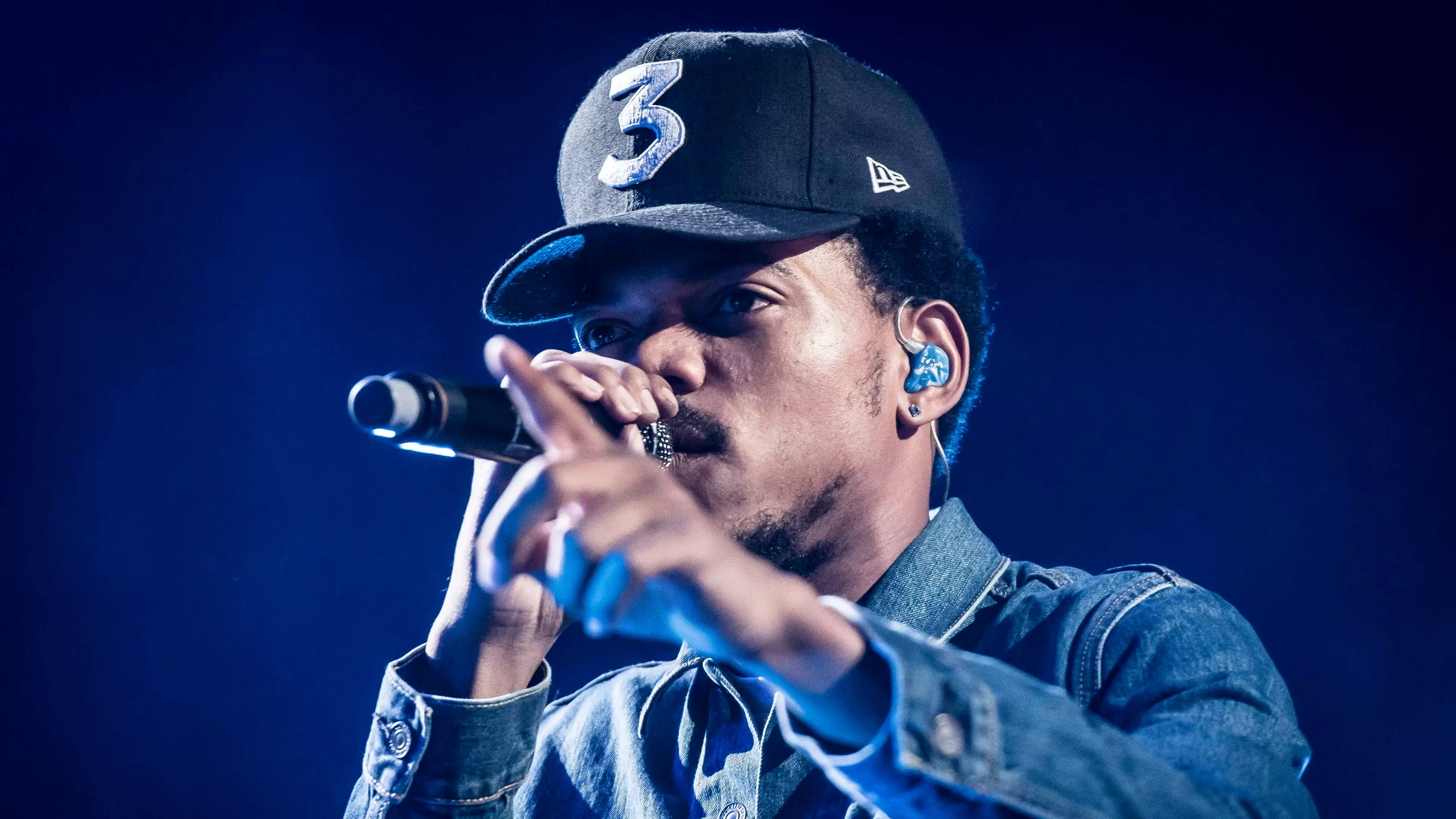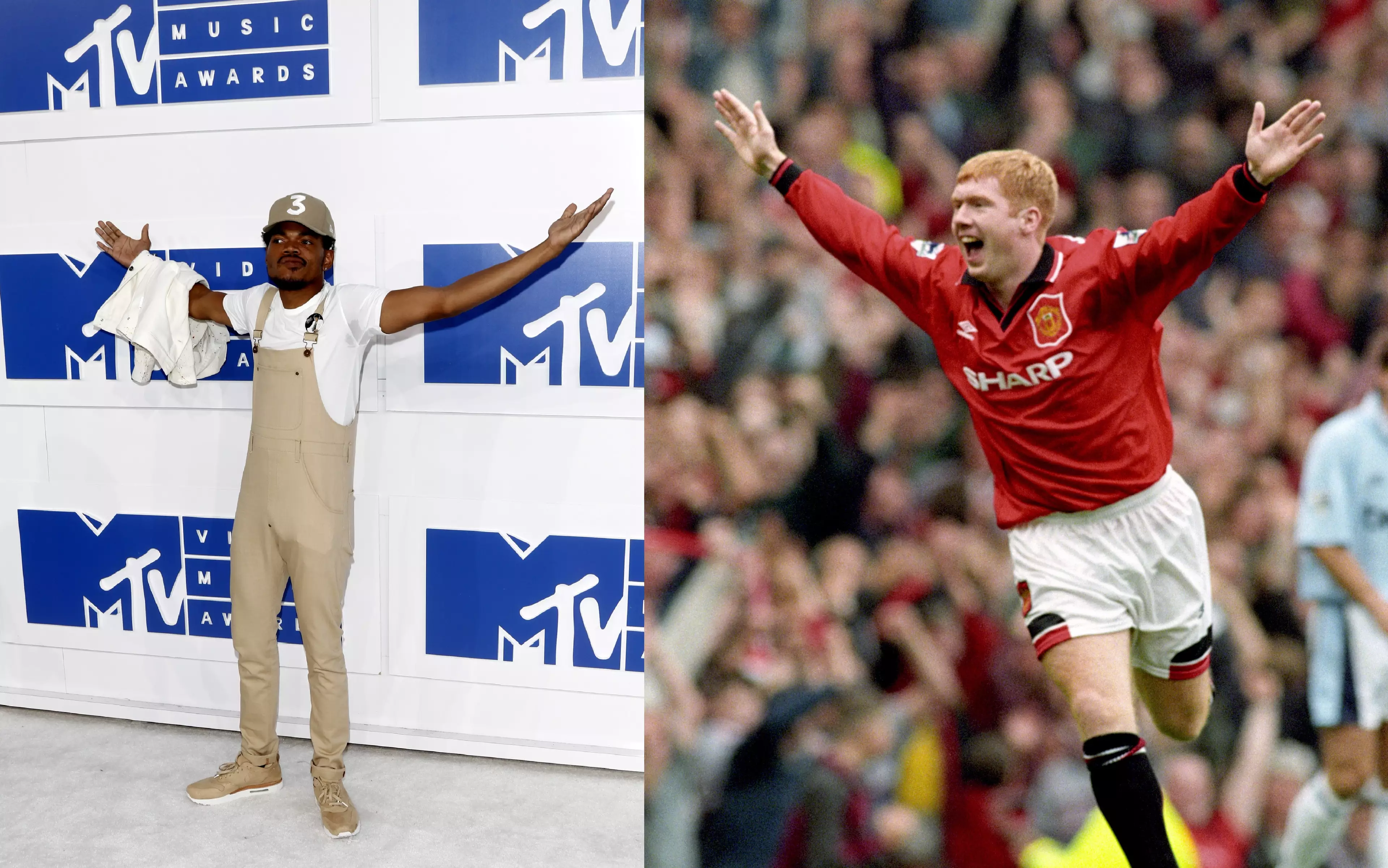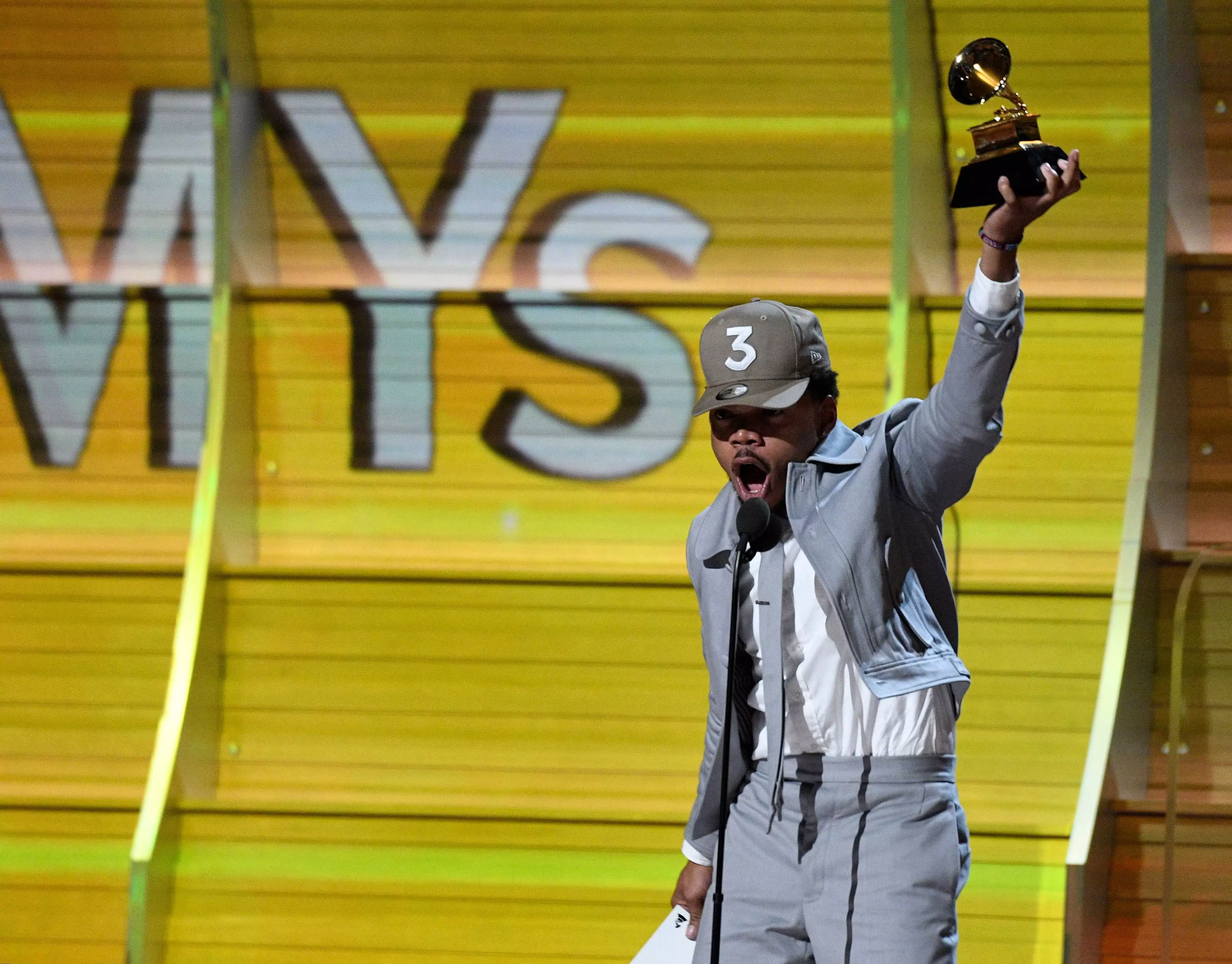
It's no secret that Chance the Rapper is widely considered to be the Paul Scholes of hip-hop, even if it is something I just made up now in my head. Bear with me.
Scholsey was one of the few professional footballers not to have an agent (it helped that he played for the best team in the land - we're going back a bit, obviously - and got paid mad ting buck as it was).
Advert
Similarly, Chance the Rapper is unique in the music industry for not having a record label, which is basically like an agent but for music, as long as you ignore the existence of booking agents and publicists.
Yes, the link is as tenuous as that time my nan said Scholes was Irish (he has red hair) and that time she said John O'Shea was marrying my cousin (simply wasn't true).
But, what I'm getting at is that Chance is no ordinary rapper man, just as the diminutive ginger-man was no ordinary midfield maestro.
Advert
Chance (legally known by the even more wonderful name Chancelor Bennett), 24, has never signed to a record label, is an outspoken critic of their role within the music industry, a devoted activist and, of course, an excellent rapper to boot, on a par with the likes of Kendrick when it comes to innovation, experimentation and basically all the good words ending in '-tion.'

Is Chance the Paul Scholes of music? (Credit: PA)
"Label deals suck," he told the Wall Street Journal in 2015. "That's just the truth of it. Why charge a dollar for [a song] when that's not doing anything but making people undervalue music? None of my songs are worth 99 cents. They're worth a lot more."
In essence, Chance gives his music away for free, making his money instead via merchandise sales and touring. While that doesn't exactly earn him a pauper's wage, it does mean significantly fewer benefits (financially and in terms of marketing) than he would enjoy if he had heavy label backing.
That said, anyone looking to buy one of his 'three' hats (which he's always pictured wearing) have a three-week wait to contend with before getting their grubby little mits on one, proving there are ways to make money off a music career without big label backing, though it probably helps if you're a snappy dresser with a good fashion sense. Belle and Sebastian might struggle.
Chance isn't strictly 'label free' per se. Both Coloring Book and his upbeat, Christian-influenced Surf (as one half of Donnie Trumpet & The Social Experiment) were streamed exclusively through Apple, which has more capital to play with than any record label in the world.
Advert
But while he's certainly not devoid of big backers, he has turned down approaches from major labels (including the opportunity to sign with friend and collaborator Kanye West's G.O.O.D Music).

Credit: PA
Moreover, until recently, not having a label prevented him from consideration for major industry awards. While he mightn't have given a fish's tit about that, his recent win at the Grammys (the rules were changed to allow streamed artists) suggest he was fairly pleased with the recognition.
Advert
He was nominated for seven awards (winning Best New Artist, Best Rap Album and Best Rap Performance) and went toe-to-toe (or flow to flow, God I should be a rapper or something) with peers who benefited from the huge exposure and marketing campaigns that come with having a label.
Since releasing his first 'mixtape' 10 Days (named after the 10-day suspension from school for marijuana possession during which he recorded the record), his decision to forego label representation has been nothing if not a success, and he's argued it may signal a shift in the industry as a whole.
He told Fader in 2015: "I've had a lot of advice from people [in the industry], who wouldn't give me that same advice today. It's not even that they have any ill will towards me because I didn't take their advice at the time.
Advert
"They're almost like, 'Keep going. You're in uncharted territory, and you're helping to shed light on what [the future of the business] will look like, and we're all curious'."
Stellar rise in the music game aside, Chance is also a noted activist. A native of Chicago, his causes include raising voter turnout, supporting the homeless, and trying to reduce Chicago's chronically high murder rate.

Credit: PA
On the night of the 2016 US presidential election, he led a march of thousands to polling stations, and was pivotal in the creation of the Warmest Winter campaign, aiming to provide homeless people in Chicago with high-tech coats, made in Detroit by homeless parents, thereby creating a vital source of income and social inclusion.
Perhaps most notably - along with both his brother and father - he was a key voice during the inaugural #SaveChicago movement, which sought to prevent shootings in the city of Chicago on Memorial Day, resulting in a 42-day cessation in shootings, impressive for a city that suffered 407 homicides in 2014.
Suffice to say, his charity, social and entrepreneurial work make Chance one of the most unique voices in the industry at the moment, but what of the music itself?
As a rule of thumb, I recommend working chronologically (unless you're watching Memento or Citizen Kane) to get an understanding of how an artist has developed, a rule which applies well to Chance.
Notice the more raw but still impressive tracks on 10 Day and how they contrast with his gospel-infused, religiously influenced third release, Coloring Book, as his collaborative efforts on Surf.
Nice one, Scholsey. Erm, I mean Chance the Rapper. Nice one.
By Ronan O'Shea
Featured Image Credit: PA